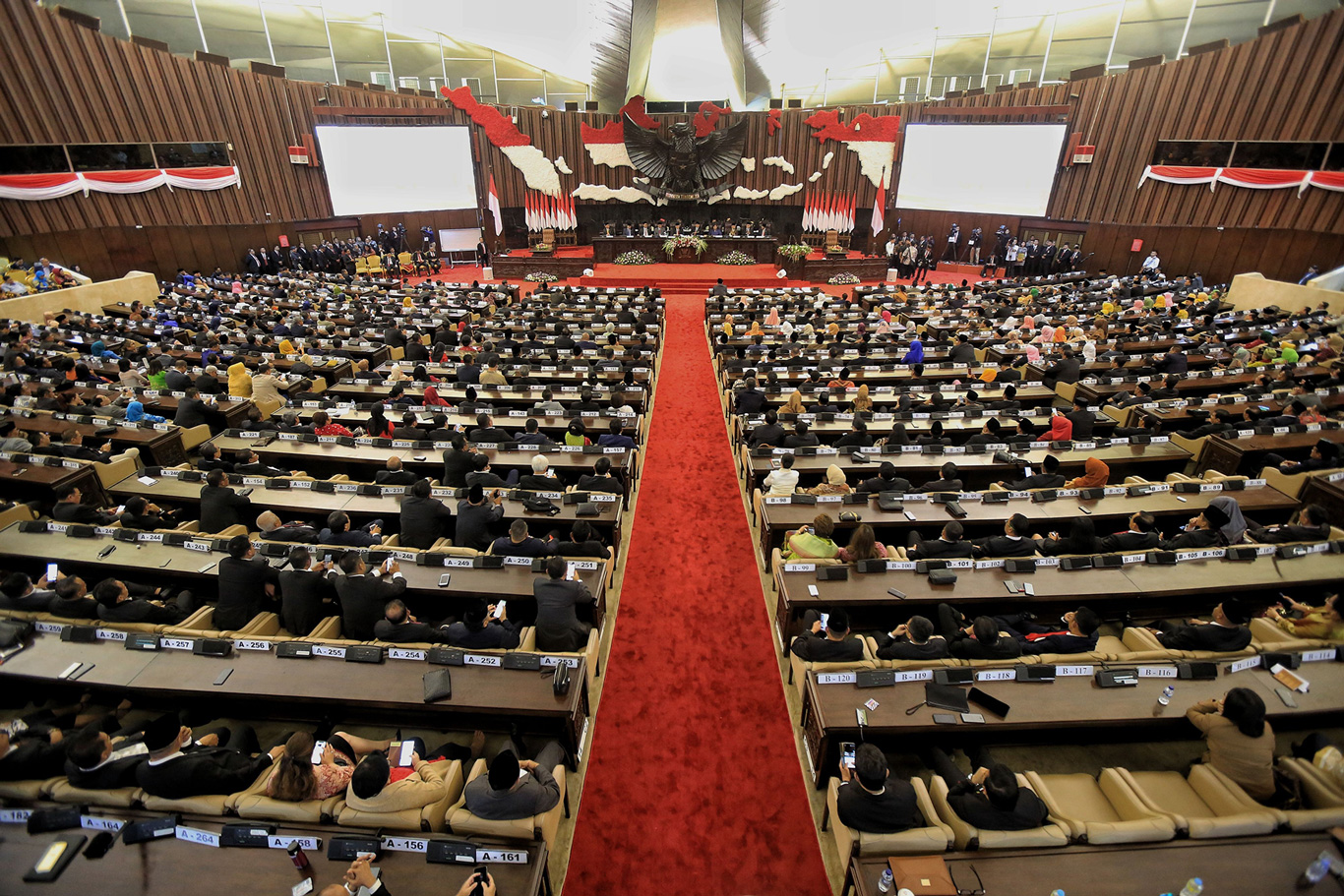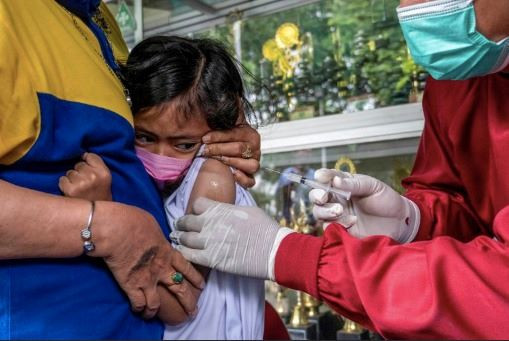Our democracy at stake
Without civil liberties and without a direct presidential election, what is left of our democracy?
Change Size
 The plenary meeting of the People’s Consultative Assembly (MPR) on Thursday, Oct. 3, 2019, in Jakarta. (JP/Seto Wardhana)
The plenary meeting of the People’s Consultative Assembly (MPR) on Thursday, Oct. 3, 2019, in Jakarta. (JP/Seto Wardhana)
It is perhaps too early to eulogize Indonesian democracy.
Freedom may be declining in the country because of rising sectarianism, deepening political polarization and the weaponization of draconian laws, but many would argue that its democracy is very much alive and well.
The argument is simple: A civilian president is now leading the nation after winning a largely peaceful, but divisive, election against a former general.
Having said that, we do have reason to be cautious about the fate of our democracy. For years, citing our success in organizing large-scale elections has served as the most convenient way to defend our democratic credentials, but this argument is in fact a red herring and may soon be irrelevant.
It distracts people from the real problem they are facing now, which is a steep decline in the quality of democracy. While having managed to hold four successful direct elections without major incidents is a feat to be proud of, there is no denying that the current political climate is far from democratic.
Moreover, considering the political developments taking place after the election dust has settled, it is not impossible that April 17, 2019, could actually be the last time Indonesians go to the poll to elect a president.
The presidential election is the result of the fourth set of constitutional amendments that were largely made to strengthen the presidential system of government. At the time, the spirit of reform engulfed the entire nation, including the political parties.
Now we have legitimate concerns that the new members of the People’s Consultative Assembly (MPR) are ready to undo those amendments.
The Indonesian Democratic Party of Struggle (PDI-P), which has aggressively campaigned for a fifth round of amendments, has gained the support of the Golkar Party and the Gerindra Party to advance its agenda. The PDI-P, of which President Joko “Jokowi” Widodo is a member, is seeking a limited constitutional amendment to revive the State Policy Guidelines (GBHN).
The political parties have claimed that the amendments would not go too far, but there is no guarantee they would keep their promise.
Under Jokowi’s presidency, political parties have struggled to gain control of the executive. Now they have a chance to change all that, meaning that the possibility of Indonesia returning to the New Order system in which the MPR had the authority to elect and remove the President is on the horizon. The newly elected MPR speaker, Bambang Soesatyo, is among those who have openly called for a serious discussion about reviving indirect presidential elections.
Seeing what happened under Soeharto, that will not end well. Without civil liberties and without a direct presidential election, what is left of our democracy?
One may argue that the student #ReformCorrupted rallies were hardly a success, given that only a few of their seven demands were met. However, the students have without a doubt succeeded in sending a clear message to the Indonesian people: that political reform is never a done deal and that democratic transition is a long, painful and fragile process that could abruptly crumble before our eyes.
We should never take our democracy for granted.








